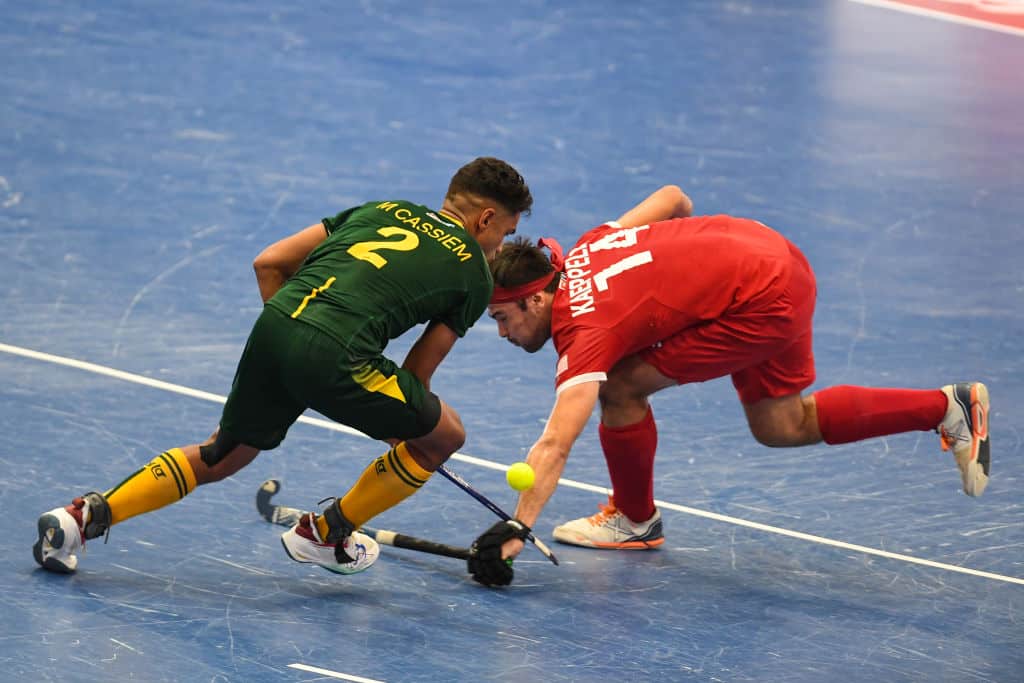South Africa has produced some top talent in hockey, but it has also been held back in recent years. A lot more needs to be done but the team’s former coach, Garreth Ewing, left behind a stable ship, one where he worked hard to improve the culture within the team environment.
By Nick Said
South Africa’s 11th place finish at the recent 2023 Men’s FIH Hockey World Cup was perhaps below the ambitions of the team but should be measured against the realities the sport faces in a country where it is under-funded yet still manages to punch above its weight.
The side suffered two narrow pool stage losses to Argentina (0-1) and France (1-2) before a blow-out 2-9 defeat to Australia. That was followed by a 6-3 success against Malaysia and a 2-5 loss to India. All of those nations are positioned above South Africa in the global rankings, with three in the top seven, so the results also have to be taken in that context.
Hockey has a long and storied history in South Africa and the country has produced some top talent, but it has also been held back in recent years by a lack of funding and questionable administration that sees many players fighting between their passion for the game and the need to earn a living.
“The reality is we need to spend more time on the training ground. We are learning in competition, which is not ideal because there is no safety net,” former South Africa coach Garreth Ewing told FORBES AFRICA.
“The best-case scenario is to spend more time together playing games that are not in competition so we can build that experience base.
“For that to happen, it means more access to players, which in turn means supporting those players financially so they can spend time away from their jobs without the financial insecurity that would come with that.
“In an ideal world we would be together 10 months a year, but that is not realistic.”
Ewing stepped down suddenly in November last year, citing “an accumulation of events, interactions, conversations and situations over a span of months (which) were starting to impact on me, both personally and professionally.”
While Ewing, who led South Africa to the semifinals of the Commonwealth Games last year, did not go into specifics; it is clear that the burden of leading a national team in a highly competitive environment where resources are scarce is not an easy one.
“In many respects resigning was an act of self-care, nevertheless it was a sad decision, and something that will sit with me for a long time.”
But he left behind a stable ship, one where he worked hard to improve the culture within the team environment.
“We are always playing catch-up, that is our reality,” Ewing said. “But as a team, we (were) in a healthy position in terms of exposure of players and building experience in our core group.
“We (had) done some strong work culturally as a team as well and we are much more resilient and a more open environment for everybody,” he added.
